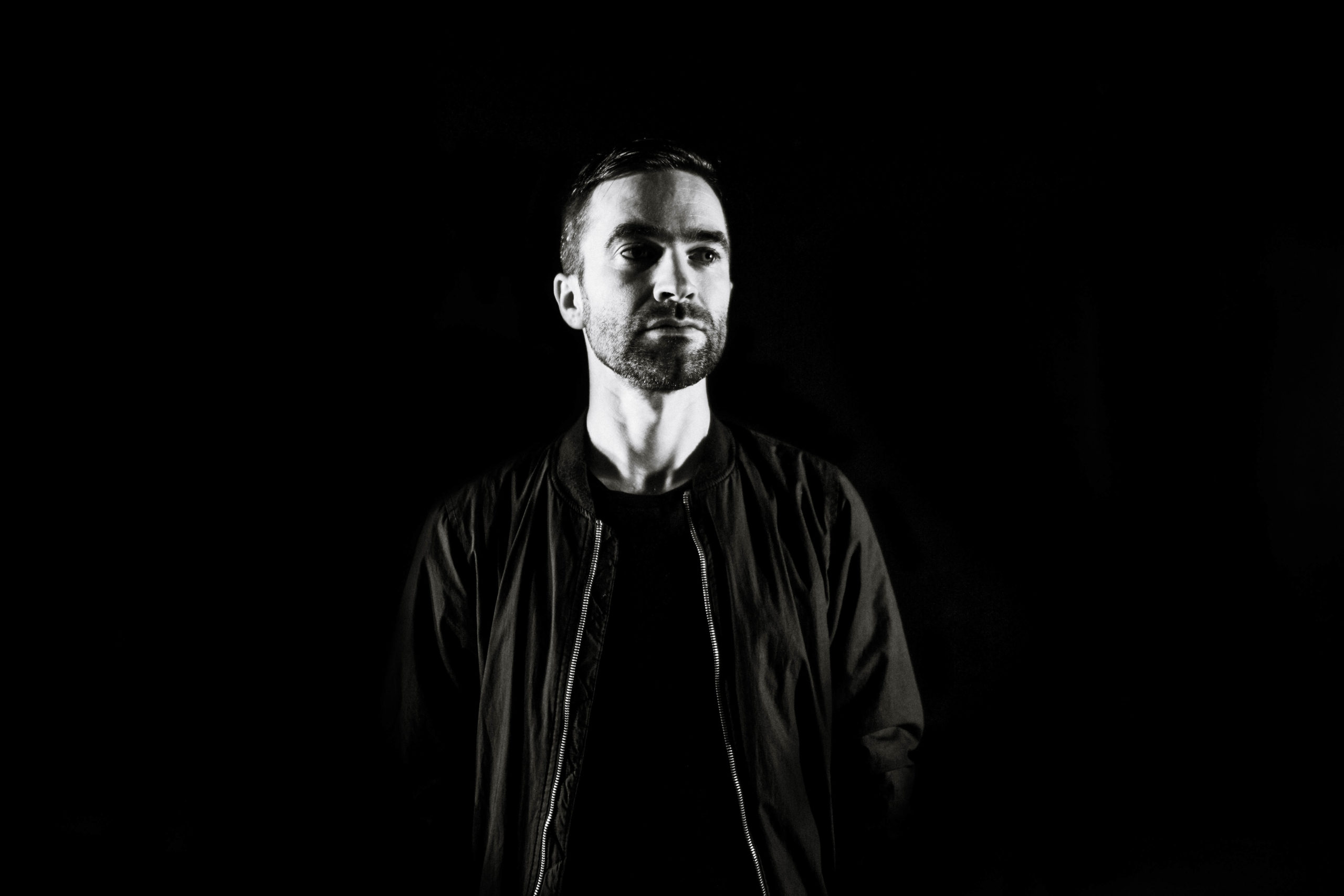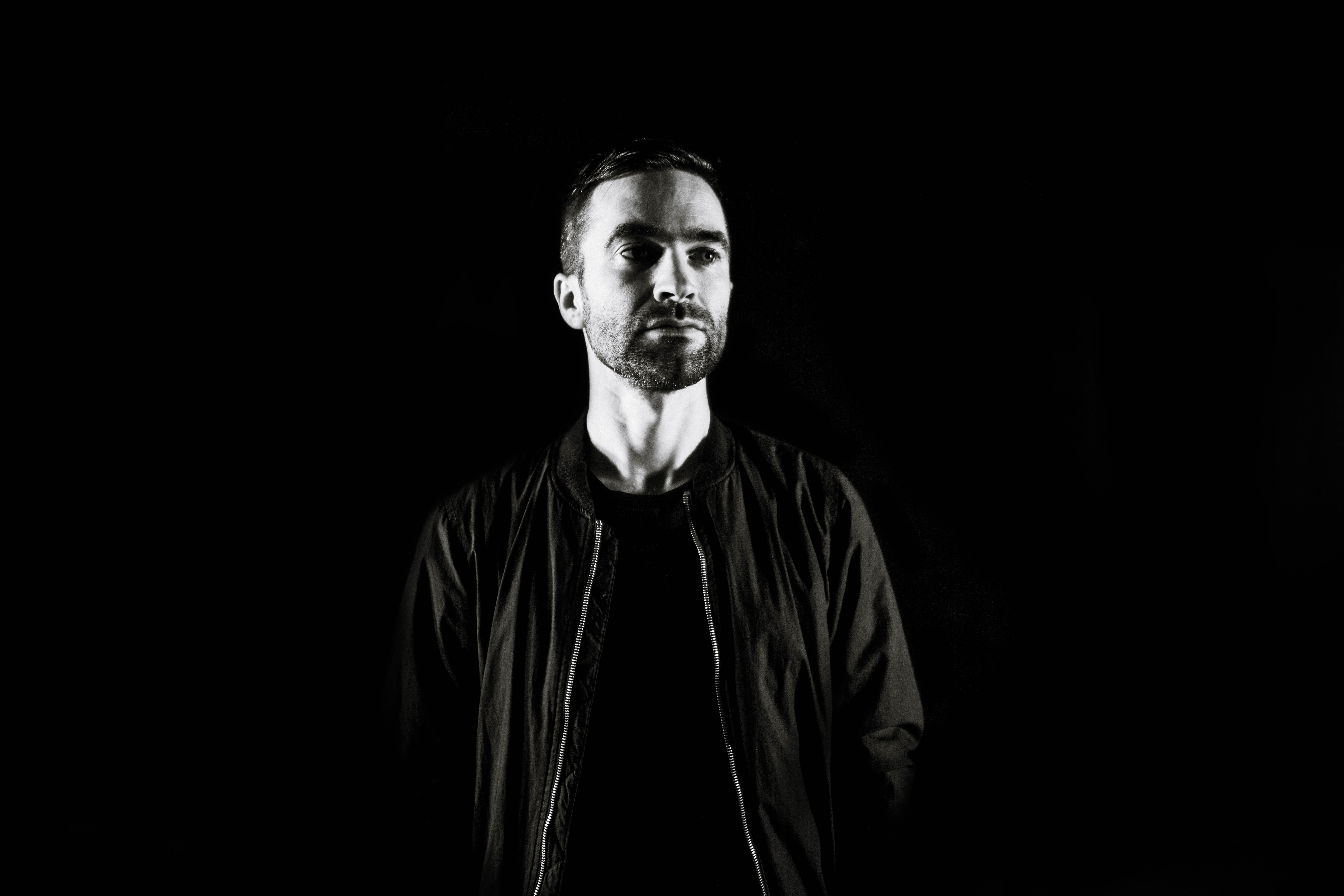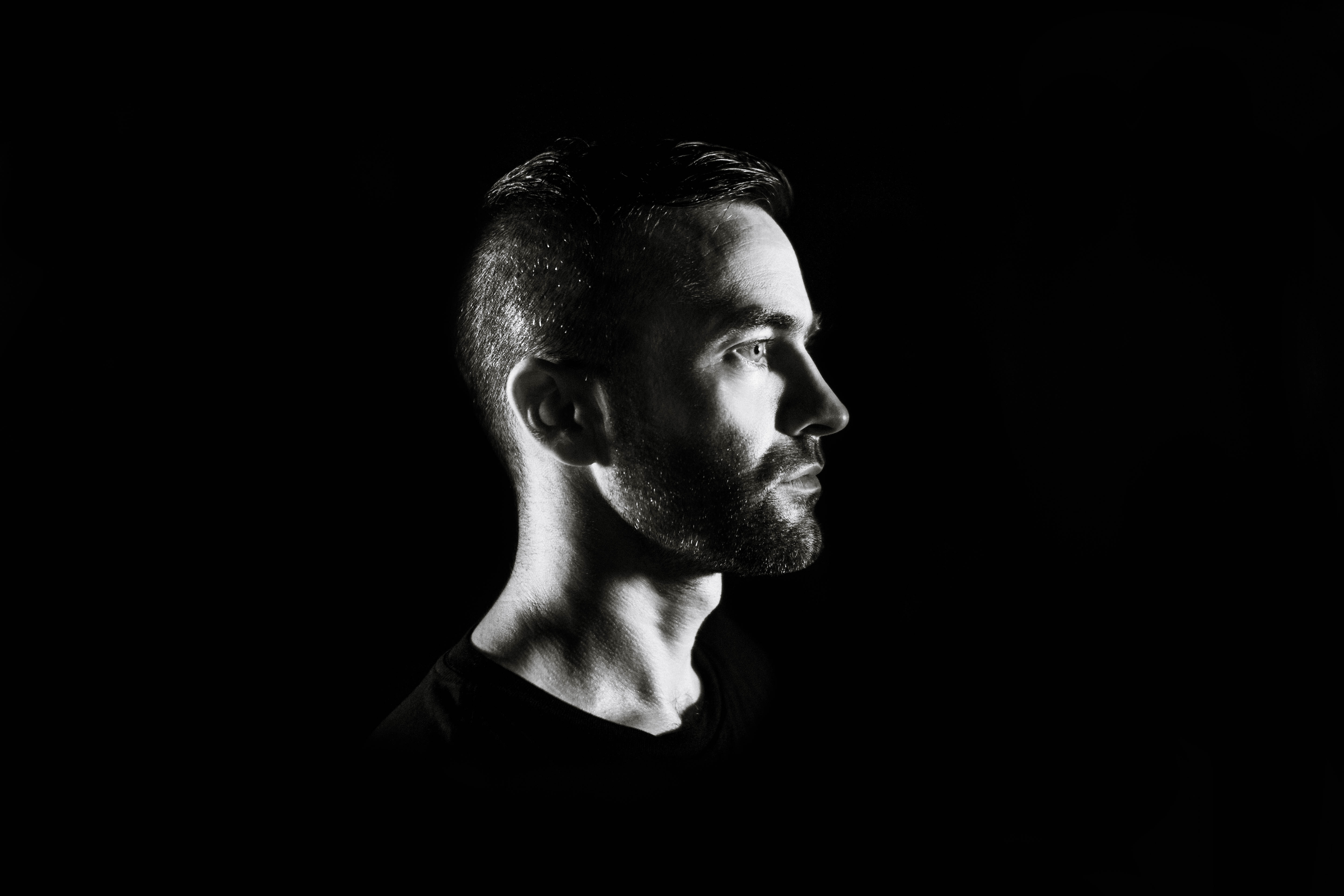Real Talk: Eomac on Misogyny in Dance Music
Ian McDonnell addresses the existence and consequences of misogyny in dance music and wider society.

Real Talk: Eomac on Misogyny in Dance Music
Ian McDonnell addresses the existence and consequences of misogyny in dance music and wider society.

Our final Real Talk of an utterly bizarre 12 months comes from Ian McDonnell, the DJ-producer and label boss better known as Eomac—and it sits there as perhaps one of the most poignant and fascinating of them all. McDonnell is perhaps best known for his work as one half of Lakker—a widely acclaimed duo most strongly affiliated with R&S Records. As a solo artist, too, his material can be found on labels including Trilogy Tapes, Stroboscopic Artefacts, Killekill—and, more recently, a double album for Bedouin Records.
Today, however, he steps out of the DJ booth and away from the studio to address the existence and consequences of misogyny in dance music—a sensitive topic that is as deep rooted in our little community as it is in society as a whole. Inspiration for this feature came several weeks ago, inspired, in part, by Donald Trump’s surprise victory in the US elections; but the ugly impacts of misogyny soon became similarly evident following the RA readers’ poll. It was time, McDonnell said, to speak up and address it head on; we simply could overlook it no more.
Last week, the Resident Advisor readers’ polls went online, including the Best Live Act of the Year, and the Best DJ. Only six female artists were included in the latter category; only one was included in the former. And it was a similar story in 2015, too.
This could easily be dismissed as unimportant, for it is just a poll. However, it is also clearly a reflection of just how female artists are under-represented in the scene—and also how they are still not afforded the same opportunities as their male counterparts. And to broaden it out, it is a reflection of how woman are under-represented and under-appreciated in society. For this reason alone, it is important. No longer is it a trivial thing.
The severity of this flaw in society had actually hit home for me a few weeks previously, before the RA poll on the day Donald Trump was elected. That is actually what pushed me to write this article. That morning I was messaging with a female friend who lives in the USA. Like a lot of people, particularly women, she was angry and hurt at the decision—after all of Trump’s horrible, misogynistic comments and actions, he still won the election. She summed up how she felt on that day as a woman: simply put, “Society does not care about women,” she said.
And it’s true: her voice, needs, and rights simply do not matter to a huge amount of people. They certainly don’t matter as much as the needs and rights of a male. This was difficult for me to hear; I felt a mixture of confusing emotions—including anger, guilt, recognition, shame, and a desire to change. I felt like a line had been drawn in the sand and I wanted to do something. At this point I have heard too many painful stories, seen too much suffering within the realm of my own experience, and read countless others online. It was time to do something.
Only recently, a woman who I am very close to and love dearly told me a story of how a man she was dating tried to rape her when she was younger. Luckily she got away but the experience stayed with her—the fear that it could have happened, and the fear it may yet happen again. And her story reminded me of others I had heard from female friends; it made me realise something: nearly every woman I know has at some point told me a story of being attacked, abused, beaten or threatened by a man. I don’t know any man who has a story like this at the hands of a woman, for the vast majority of women do not perpetrate violence against men. But men do against women, in action, in words, in thought—for no reason other than their own inadequacies and fears; and also by listening to a message that has been perpetuated through mainstream media, film, TV, literature, pornography (especially), music, and advertising. Modern medias send a message that women are less important than men; and that men are the ones with power and we can do what we want with women.
“The logical conclusion of all this manipulation and programming is a society that is out of balance; a patriarchal world where nearly every woman I know has a story of abuse; where we actually need to educate men about consent, and where the words “rape” and “culture” now sit side by side in our lexicon.”
I actually know this feeling, as a man. I have felt the power of this manipulation; I have felt this conditioning—though it has never felt good or true. I have never seen women as objects or as less than me, and yet I have objectified and degraded and felt superior on many, many occasions. The idea of male dominance is glorified, normalised, and perpetuated endlessly and relentlessly. The logical conclusion of all this manipulation and programming is a society that is out of balance; a patriarchal world where nearly every woman I know has a story of abuse; where we actually need to educate men about consent, and where the words “rape” and “culture” now sit side by side in our lexicon.

In terms of the electronic music scene, the conversation about misogyny has started and it is louder than ever—but it still needs more engagement, especially from the men. There are many amazing female producers and collectives actively helping each other and promoting inclusivity and feminism within the scene, but the men need to be onboard too. We still hold most of the positions of power in this industry—label heads, festival and club promoters, managers, agents. And some are still blocking the opportunities of female artists, to the detriment of the entire scene. Equality really is better for everyone. Aren’t festivals with a more balanced lineup when it comes to genders more interesting? This is not because there are more women on the lineup, but because those women are amazing artists who bring a new energy to electronic music. It is an entirely positive thing.
But there are still many instances of misogyny in music. In fact, they happen all the time. When a female DJ or producer does something—like write a track that sounds like another one, or simply performs a successful Boiler Room set—the online comment sections are filled with vitriol and abuse. This type of misogyny is blatant and plain for everyone to see. And in these glaring instances there are usually other voices speaking out against the abuse and showing support for the artist in question. This is a positive step.
But another form of misogyny is prevalent—which is much more insidious and systemic. In fact, this misogyny is so commonplace that we often don’t even see it. These are the things we implicitly accept—a focus on how a female artist looks, for example. Or an assumption that there must be some other reason why a woman is in a position of success or power—it couldn’t just be because of her talent, could it? How did she get that position? Who really produced her beats? These questions are never asked of men; instead, it is always assumed that men are where they are because they deserve to be.
“Misogynistic language has become casual, flippant, and normalised. We’ve heard it so many times in tracks.”
In addition to this is the relentless objectification of women in music videos, promo pictures, flyers, and youtube thumbnails. Or unquestioned, unchecked misogynistic language and lyrics. Women, still in 2016, are referred to as “sluts,” “bitches,” and ‘hoes’—all words that are used to reduce a woman, a human being, to an object instead of a person. That is extremely dangerous; language and the way we use it is important. Misogynistic language has become casual, flippant, and normalised. We’ve heard it so many times in tracks. It’s as boring as it is dangerous.
For the kinds of things I’m talking about check out the recent Danny Brown “Really Doe’ track,” or Diplo’s Twitter feed, or Massive Attack & Young Fathers‘ “Voodoo in the Blood” video, or the gender disparity on the lineups of most electronic music festivals, or the “parody” remixes of Donald Trump’s nauseous “grab her by the pussy” comment, or Arca getting all the production credit for Björk’s “Vulnicura,” or the comments sections on most music sites, or the RA polls mentioned above, or even this Real Talk series of articles—there has not yet been one by a woman. And the list goes on. And from my own experience, in the spirit of openness that this conversation needs, I have displayed this kind of misogynistic behaviour in the studio with female artists—I have shut down, belittled, and disregarded ideas from women simply because I felt threatened that their ideas were better than mine or were infringing on my “territory” as a producer. This is the kind of misogyny where I couldn’t, or didn’t, see it. It really is that deeply ingrained.
The world is in a dangerous place right now, on a political and social level. And we, as artists, have a responsibility within that. Along with labels, blogs, and media, we need to be more careful about the messages we are putting out. We don’t yet live in a free world; and we don’t yet live in an equal world. There is misogyny; there is racism; there is homophobia. In many areas society is actually regressing. While freedom of speech must be defended and upheld, we are grown ups, and we must behave as such.
Why do intelligent, grown men feel the need to use misogynistic language and imagery? And why do we, as society, continue to defend it? It’s not just a bit of fun. It is not light-hearted. The impulse that provokes one to defend such language is the impulse that must be looked at and understood in order to let it go. That is the conditioning that needs to be addressed. When misogyny becomes so deeply ingrained in our art and music that we don’t even notice it—when it becomes part of the very language we use, it sets a very dangerous precedent for society as a whole. I feel we need to call this out for what it is and not simply let it continue. As a male in the industry, I can’t sit by and watch in silence anymore. The consequences are too grave. Check out the “Men’s Rights Movement” or any mainstream porn site if you want to see how dark the logical conclusion of this mindset is.
“It is too simplistic, and an avoidance of the real problem, to say that rape is simply committed by bad men.”
And it is dark. When people are dehumanised it is a mandate for the very worst of human behaviour. There is a direct link between the normalisation / acceptance of misogynistic language and imagery and the rape culture we are living in. It is too simplistic, and an avoidance of the real problem, to say that rape is simply committed by bad men. Or worse, to take the misogynist viewpoint that rape is committed by men responding to the temptations of bad women. “What was she wearing?”; “She was asking for it.” This view is held by a disturbingly large proportion of society—as if men are animals who are slaves to our desires and female sexuality is a dangerous thing that needs to be kept hidden and suppressed. That kind of thinking does a great disservice to everybody, men and women. Men are not animals with no self control—ignoring a lack of consent is always a conscious choice. And a woman’s sexuality is not a dangerous nor negative thing. A woman should be able to express herself freely without judgement, shame or violent repercussions—just as men do. No this is not an issue of “bad” men or “bad” women. It is neither of those things. The truth is much uglier. Rape is committed by ordinary men who have grown up in a society that tells them it is ok to rape.
This is extremely fucked up. And it needs to end. But what can we actively do, as men, to help bring about a positive shift both in the scene and society?
To be honest, I don’t really know. I have been guilty of “mansplaining” when I have talked about this with female friends—and I am sure I have blind spots in this article. But we all have a part to play and I am open to learning. I believe we must first admit and own our misogyny. I have never met a man who is not misogynistic in some way. Myself included. That may seem like a controversial statement but I stand by it. We have all grown up in the same society; we have all been conditioned in the same negative way. But we don’t have to continue that way. We can let go of the conditioning. We need to ask difficult questions of ourselves if we really want to change. We need to question each negative thought and reaction, because somewhere in those reactions lie the answers. Recognising the instances when we are being misogynistic is a start. Then we need to change them—simple but not easy. We can call out misogyny when and where it rears its ugly head. We can stop going on sexist rants online and then claiming it has “nothing to do with gender.” But mostly, I think we can listen. Really listen. Listen to what the women in the scene and in our personal lives are saying. Don’t dismiss it. Don’t fear it. We might actually learn something.
With all of that said, I know I’m not out of it. I am working on those very misogynistic and sexist tendencies I am talking about. I know that they are not my true tendencies, they have been put there by society. But I have to be honest and admit that they are still there. I can’t point a finger at others without owning the fact that I, until very recently, used the same kind of hateful language. I enjoyed the same imagery. I held the view that it was ok, just a harmless bit of fun. I endorsed and took part. Perpetuated. I had no problem with my misogynistic mindset because I enjoyed the position of privilege I am in. But I was blind to the fact that it is a position of privilege, and I was blind to the pain I was causing by my words and actions. But not anymore. My eyes are open.
It’s time for a new paradigm.

